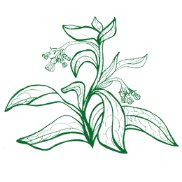The Vision
Our vision is to have low maintenance food forests in every food desert in the city & beyond.
The Mission
Our mission is in activating & engaging community intergenerationally through food forests, permaculture education, & the arts to cocreate sustainable solutions to City food deserts.
Did you know?
The Southside Food Forest model has been recognized by the United Nations for scalability & replicability, actively elevating 10 of the 17 UN Sustainable Development Goals as a specially-accredited invitee for the historic United Nations Summit of the Future (ECOSOC + UNFCCC recognized) & was invited as a presenting organization for United Nations COP29 & United Nations CSW NGO Beijing+30 Forum on the climate for ‘‘How Music & the Arts are Empowering Community-Driven Climate Solutions, Intergenerational Leadership & the Achievement of UN Sustainable Development Goals’’
How we started…
Southside Food Forest | Winston-Salem, NC, USA
Southside Food Forest is a community garden, intergenerational learning & recreation hub minutes from downtown Winston-Salem in an area food desert. For the past five years, intergenerational & cross sector efforts by community members have planted fruit trees, herbs, flowers & berry bushes for the benefit of the community & ecosystem. Our members believe that eliminating food deserts in urban areas is essential to self-reliance & achieving prosperous, sustainable communities.
The Boy and Girl Scouts, Hispanic League, Arts Council of Winston-Salem Forsyth County, Spark Community WS, Piedmont Environmental Alliance, Winston-Salem State University, Young ECOS, Wake Forest University, International Human Rights Consortium, Sacred Spiral Holistics, DOSE Artist Collective, Activate Entertainment Winston-Salem Fashion Week, Sustainable Fashion Week US, Appalachian State University, Salem College, NC Cooperative Extension & more
...have ALL used this space for events, workshops, gatherings, internships, Eagle Scout Projects, & academic credit.
Follow us on our Instagram @southsidefoodforestwsnc
How its going…
Trees:
Black walnut*
pecan*
eucalyptus
pear
mulberry*
fig*
peach*
plum*
nectarine
apricot
pomegranate (seasonal addition in pot)
ginkgo (year round in pot)
persimmon
cherry
apple (multiple varieties)*
goumi
Shrubs:
elderberry*
blueberry*
blackberry*
milkweed*
hibiscus*
roses
raspberry
gogi berry
Vines:
muscadine grape*
passion fruit*
Malabar spinach
vining strawberry
Flowers:
sunflower*
verbena*
bee balm*
eastern columbine*
calendula*
cosmos*
white clover*
wild aster*
irises*
dandelion*
daffodil*
chrysanthemum*
black eyed susans*
evening primrose
nasturim
marigolds
snapdragon
strawflower
zinnias
Herbs:
mint
bee balm *
lavender
thyme
rosemary
mugwort *
ginger
turmeric
comfrey
red+white yarrow *
chamomile
goldenrod*
echinacea*
st. johns wort
chives
borage
lemon grass
Ground covers:
clover*, crimson and dutch white
creeping thyme
strawberry
plantain*
wild violet*
Etc:
walking onion
yucca
prickly pear
rainbow chard
romaine
kale
* indicates a native plant
Future Places
In 2025 we re-launched the “Help a Neighbor Plant a Native Fruit Tree” program as well as our new greenhouse classroom and the launching of the new Cook Elementary Food Forest Garden.
Do you have ideas for a location of a Food Forest Community and Learning Garden?
Reach out to us at wspermaculturecollective@gmail.com








